Ata-ul-Haye Nasir, Al Hakam

In September 1929, Hazrat Musleh-e-Maud, Mirza Bashir-ud-Din Mahmud Ahmadra, was on a visit to Srinagar, Kashmir. The Al Fazl of 24 September 1929 announced that Huzoorra would depart from Srinagar on 28 September for his return to Qadian. Al Fazl of 4 October wrote that since the earlier information suggested that Huzoorra would reach Qadian at 10 am on 30 September without any stopover, Ahmadis had gathered at the Qadian railway station in huge numbers, at the time of expected arrival, to welcome their Imam. However, they were then informed that Huzoorra did not depart from Jammu Railway Station on 29 September as per the earlier programme, the reason being that the motorcars of Huzoor’sra entourage did not reach Jammu on time to embark on the relevant train. According to the new schedule, it was announced that Huzoorra would return on 1 October, after a day’s stopover in Jammu.
Hence, without any prior intention, Hazrat Musleh-e-Maudra stayed at Jammu for a day, before proceeding to his return journey towards Qadian. However, this unplanned stopover proved to be a very blessed one for the Jammu Jamaat. Moreover, it served as a great opportunity for the spiritual guidance of many local non-Ahmadis as well.
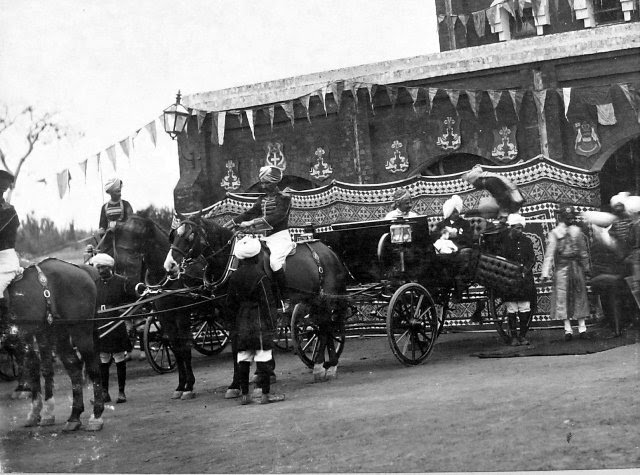
A request by Jammu Jamaat
Sensing it as a great opportunity, the members of Jamaat-e-Ahmadiyya Jammu requested Huzoorra to deliver a lecture. Therefore, Huzoorra addressed a gathering, on 30 September 1929, which was attended by many non-Ahmadis as well.
Hazrat Musleh-e-Maud’sra address
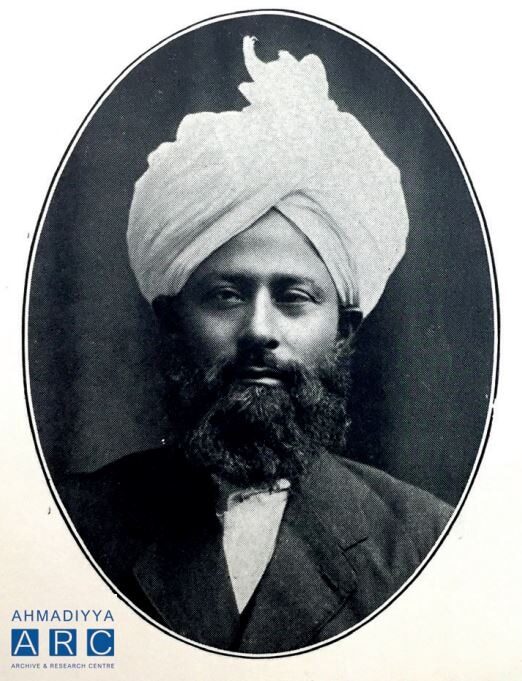
After reciting the tashahhud, ta‘awwuz and Surah al-Fatihah, Huzoorra stated:
“In accordance with the Will of Allah the Almighty, I had to stay at this place for one day, despite the fact that I had planned to depart from here yesterday. I had the heartiest desire to visit this place due to the fact that the first Khalifa and Imam of our Jamaat, Hazrat Maulvi Noor-ud-Deenra resided here for a long time. As it is a practice that one visits places related to their loved ones, I had this desire for a long time, however, there is a certain time decreed for everything. Despite having a great desire, I could not come before; however, now I had to stay here without any prior intention. The members of our Jamaat here have expressed their desire for me to address those who have not yet joined our Jamaat. There is a great Wisdom of God [behind this stay], because I had thought that my time had been wasted, but now God has arranged this gathering here. It is quite possible that during my speech, those who are in search of the Truth, may find something beneficial that could be fruitful for them.
“In my view, the objective of religion is not to create disorder and chaos, but rather, it aims to purify the souls. If its objective was to create disorder, Satan could have easily fulfilled it well and truly. However, this is not the objective of religion at all.
“A wise person cannot even imagine for a moment that the Holy Prophetsa, who had spent the years of his youth for the betterment of his nation, had stood to create disorder and chaos during his elder age. There is an incident about the Holy Prophetsa, mentioned in history, to which generally historians have not given much importance but I really adore it. This is an incident from the battle of Uhud, when the blessed teeth of the Holy Prophetsa were injured. At that moment, Abu Sufyan called out, ‘[O Muslims!] Where is Muhammad[sa? Where is Abu Bakr[ra]? Where is Umar[ra]?’ In other words, [he meant to say that] ‘everyone has been killed.’ Upon this, Hazrat Umarra wanted to respond to him, ‘I am here to face you,’ however, the Holy Prophetsa forbade him from responding, and stopped him from saying anything for himself. However, when Abu Sufyan called out: اُعْلُ هُبَلْ۔ اُعْلُ هُبَلْ, [‘O Hubl! Exalted by thy name!’] Then, the Holy Prophetsa could not bear it and said [to the Companionsra], ‘Why do you not respond?’ [The Companionsra submitted, ‘O Messengersa of Allah! How shall we respond?’ The Holy Prophetsa said, ‘Proclaim:] اَللّٰهُ اَعْلٰی وَاَجَلُّ’ [i.e., ‘Greatness and grandeur belongs to Allah the Almighty alone.’] (Sahih al-Bukhari, Kitab al-maghazi, Bab ghazwati uhud, Hadith 4043; As-Sirah an-Nabawiyyah, by Ibn Hisham, Vol. 2, p. 140, Matba‘ Maktabah Faruqiyyah, Multan, 1977)
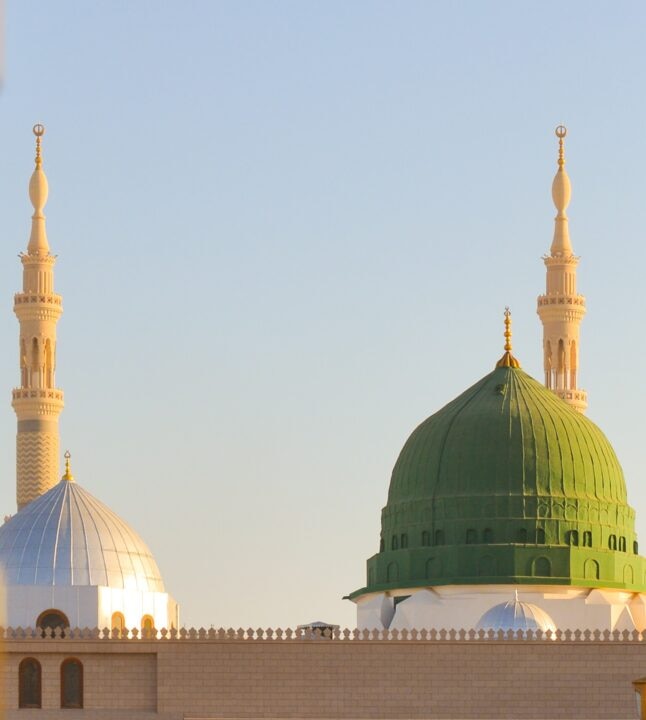
“In short, he neither boosted his own self, nor did he ever desire any glory for his own self, but rather, he always strived to glorify the Name of God. Hence, in the presence of such incidents, I can never agree that the Holy Prophetsa came into this world to propagate his own glory. Thus, with the narration of this one incident, I advise the Ahmadi [Muslims] and the Muslims from other sects that they are required to leave aside prejudice, and to ponder over the truthfulness.
“Now that some people have presented a few questions while I am going to board the train very soon, it is impossible to answer all of them. However, I will state only one point, which cannot be denied by the followers of any religion. That is, the people who believe in God, hold the belief that no one can ever surpass the love that Allah the Almighty holds [for His servants]. If there is any God, He is more loving than one’s parents as well. Moreover, He cares about our guidance more than anyone else.” (Hidayat ke mutlashi ko kia karna chahiay?, Anwar-ul-Ulum, Vol. 11, pp. 17-18)
After this, Huzoorra mentioned that an American atheist, in his book, has posed a question for the Christians that if there was a God then no one can deny the fact that He must be loving and caring to mankind more than their parents, and just like one’s parents and friends stop one from taking any poison, why does God not prevent mankind from deviating from the right path?
Huzoorra continued:
“When I reached this point in that book, I was immersed in wajd, thinking that these are the sentiments of human nature. A thought crossed my mind that undoubtedly Christianity could never satisfy him, but Islam could surely do so. God Almighty states in the Holy Quran:
وَالَّذِيْنَ جٰهَدُوْا فِيْنَا لَنَهۡدِيَنَّهُمۡ سُبُلَنَا
“‘And [as] for those who strive in Our path – We will surely guide them in Our ways’ (Surah al-Ankabut, Ch.29: V.70).
“In this era, there are so many sects that it is difficult to even count them. In such circumstances, a seeker of the truth has no other way than to bow before God and seek the right path.
“There is an incident about a Sufi that while one of his students was leaving him [after seeking knowledge], he wished to give him some advice and asked, ‘Now that you are leaving from here, tell me what would you do if Satan confronts you?’ The student responded, ‘I would contest with him.’ The Sufi asked, ‘Well, if he runs away once, and returns to confront you again, what would you do then?’ The student said, ‘I will still contest with him.’ The Sufi said, ‘In this manner, you would always remain occupied contesting Satan, and thus, how would you progress [in spirituality]?’ The student said, ‘Then please tell me what I shall do.’ He said, ‘Tell me, if you go to visit one of your friends and his dog confronts you, what would you do in such a situation?’ The student responded, ‘I will remove him from there.’ The Sufi said, ‘What would you do if it does not go away and prevents you from entering [his house]?’ He said, ‘I will call my friend to stop his dog, so that I can get inside.’ The Sufi said, ‘Yes, this is the very method to seek God; when Satan does not get away from one, they ought to pay heed to God and to call Him, ‘Please move it away from my way.’
“Hence, in my view, the best means to seek the Truth is to pay heed to God, and to ask God Almighty, ‘I do not wish to follow a religion merely because my parents are doing so, but rather, I want to follow a religion by [truly] considering it a “religion”. Thus, please help me find the true religion.’ Once a person adopts this method, God will surely guide them. This is my personal experience, in fact, many of the non-Muslims have also had a similar kind of experience, which helped them succeed as well. Thus, if one has not succeeded [in seeking the truth] through arguments, they ought to adopt this method, and God Almighty would surely help them.
“Surah al-Fatihah, which I have just recited [in the beginning], is a prayer and is not particular for the Muslims, but rather, both Muslims and non-Muslims can attain success through it. In this, it has been taught that one should pray: ‘O God, guide us to the pathway which leads us to guidance, the path of those on whom Thou hast bestowed Thy blessings in the past, not of those who have incurred Thy displeasure and gone astray.’ Thus, in my view, the one who is the seeker of guidance is required to leave aside prejudice […] and pray: ‘O God, You created me, You are the source of all Truths, You are the only guide; thus, please guide me to the path of Truth.’ I believe that if one does so for 40 days, Allah the Almighty will surely create means for their guidance. This is a method from which everyone can benefit regardless of whichever religion they might follow.
“If I present to you the arguments and succeed in convincing you, it is quite possible that someone else might also come to you on another day and declare these points to be ‘incorrect’ and present their ‘arguments’ against them, and finally succeed in convincing you. For this reason, I am advising you on a method that would enable you to seek guidance yourselves from God. This is the method to decide which I would have liked for myself as well if I were in search of truth. However, there are some who want to know and listen to the arguments, thus, I would state some points for such people as well.
“It is our claim that the condition of the Muslims had become very fragile, and they had become completely ignorant of the [true teachings] of the [Islamic] Faith. What was left [in their hearts] was only the name of Islam, and they had abandoned acting upon the Holy Quran. They were only following the [religion] for the sake of rituals. Hence, by the ever-existing practice of God, the advent of a ma’mur and mursal [God’s appointee] had become a necessity, who could better the condition of the Muslims, revive [the true teachings of] Islam, and make them follow the Quran. Hazrat Mirza [Ghulam Ahmad] Sahibas claimed that ‘I have been appointed by God Almighty for this very purpose; I am the Promised Messiah, and an appointee of God. My task would be to establish Islam in the world, defend it from the attacks of the [followers of] other religions, refute the objections, and to present the true image of Islam.’
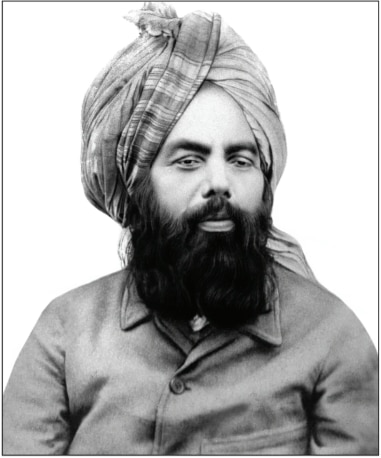
“Therefore, it was only him through whom that objection was refuted, which had been raised against the Holy Prophetsa for a long time, that ‘Islam has spread in the world through sword.’ He proved that the reason behind the propagation of Islam was the Holy Prophet’ssa power of holiness, which was able to impact even the most rigid heart. The Holy Prophetsa convinced hundreds of thousands through this very method. In this era as well, God appointed his servant as the Promised Messiah, so that his servant could propagate Islam in the world without the sword, and tell the world that the task that could be fulfilled by a servant, why could it be not accomplished by his master?
“The Holy Prophetsa was the master, and we believe that one can attain the highest perfections through his obedience. Look, would the perfection of a teacher mean to say that ‘he is such a perfect teacher that none of his students can go beyond the primary level’ or that ‘he is so perfect that even his students have attained B.A. and M.A.’ [degrees]? We believe that one can attain prophethood through the obedience of the Holy Prophetsa. The words اَنۡعَمۡتَ عَلَیۡہِمۡ [On whom Thou hast bestowed Thy blessings] which are mentioned in Surah al-Fatihah, have been elucidated at another place, in the words:
وَمَنۡ یُّطِعِ اللّٰہَ وَالرَّسُوۡلَ فَاُولٰٓئِکَ مَعَ الَّذِیۡنَ اَنۡعَمَ اللّٰہُ عَلَیۡہِمۡ مِّنَ النَّبِیّٖنَ وَالصِّدِّیۡقِیۡنَ وَالشُّہَدَآءِ وَالصّٰلِحِیۡنَ ۚ وَحَسُنَ اُولٰٓئِکَ رَفِیۡقًا
“[‘And whoso obeys Allah and this Messenger [of His] shall be among those on whom Allah has bestowed His blessings, namely, the Prophets, the Truthful, the Martyrs, and the Righteous. And excellent companions are these.’ (Surah an-Nisa, Ch. 4: V. 70)]
“In this verse, four ranks have been mentioned of those who are bestowed upon by God’s blessings, i.e., prophet, truthful, martyr, and righteous. In other words, one can attain these four ranks through obedience to Allah the Almighty and the Holy Prophetsa. A major difference between the Holy Prophetsa and other prophets is that one could not attain prophethood as a result of obedience to the previous prophets, though they could attain the status of a truthful and a martyr. However, the Holy Prophetsa was granted such perfection that through his obedience, one could attain prophethood as well.
“Some people often say, due to their ignorance, that in this verse, the word ‘مَعَ’ has been used, which tells that ‘they would not be prophet, but get the company of prophets.’ However, they are unaware that this word ‘مَعَ’ has not been used for النَّبِیّٖنَ [the Prophets] alone, but rather, for اَلصِّدِّیۡقِیۡنَ، اَلشُّہَدَآءِ، اَلصّٰلِحِیۡنَ [the Truthful, the Martyrs, and the Righteous] as well. If we accept these meanings, it would mean that ‘they would not be prophets, truthful, martyr, or righteous themselves, but rather, they would only attain the company of the prophets, truthful, martyrs, and righteous.’ However, if we ponder over this matter, we find that in light of these meanings, nothing remains of the ummah [from the spiritual perspective].
“Here, ‘مَعَ’ is in the meaning of ‘مِنْ’, i.e., ‘from among’. This meaning of [the word مَعَ] is found in the Holy Quran. Hence, it is stated: وَتَوَفَّنَا مَعَ الۡاَبۡرَارِ [‘And in death number us with the righteous.’ Surah Aal-e-Imran, Ch. 3: V. 194)]. It does not mean that ‘Give us death along with the righteous people when they are about to die.’
“Thus, it is proven from the Holy Quran that by way of obedience to the Holy Prophetsa one can attain the status of prophethood. It must be remembered that the one who attains prophethood through the Holy Prophet’ssa obedience […] would serve as a subordinate [prophet] to the Holy Prophetsa. So, the attainment of such prophethood would not cause any disrespect to the [status of] the Holy Prophetsa. It is mentioned in a hadith:
لَوْ کَانَ مُوْسیٰ وَ عِیْسیٰ حَیَّیْنِ لَمَا وَسِعَھُمَا اِلَّا اِتَّبَاعِیْ
“‘If Mosesas and Jesusas were alive, they would have no other way than to follow me.’ (Al-Yawaqit wa l-Jawahir fi bayan ‘aqa’id al-akabir by Allama Abdul Wahab Shi’rani, p. 174)
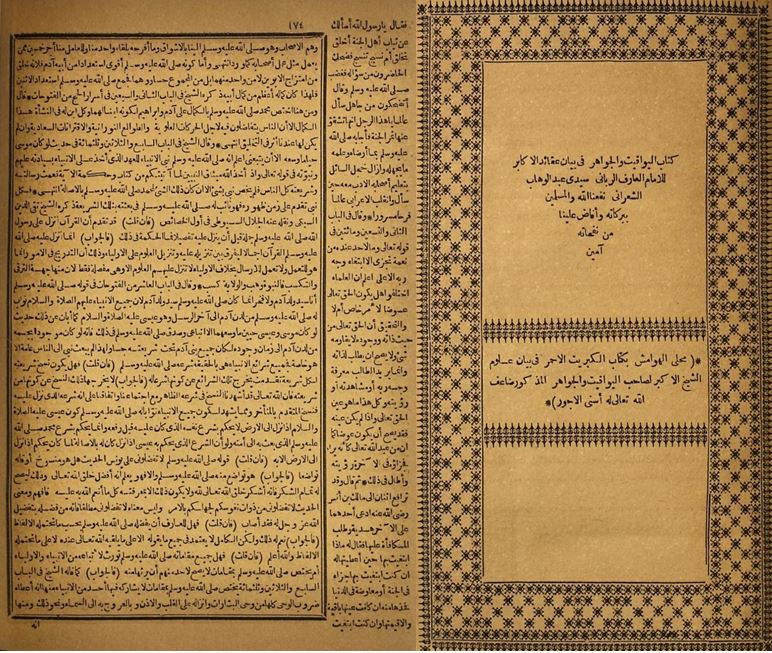
“Hence, the Holy Prophetsa would have never said this if a prophet being his follower was considered as a disrespect. The Promised Messiahas was proud to be [the Holy Prophet’ssa] follower, despite being a claimant of prophethood, and considered it a source of honour to call himself a servant of the Holy Prophetsa. So, there is a well-known couplet of him:
کرامت گرچہ بے نام و نشان است
بیابنگر زغلمانِ محمد
“[Though miracles have become very rare, come and witness the servants of Muhammadsa. (Ai‘na-e-Kamalat-e-Islam, Ruhani Khazain, Vol. 5, p. 649)]
“In another instance, he stated:
بعد از خدا بعشقِ محمد مخمّرم
گر کفر ایں بود بخدا سخت کافرم
“[‘Next to God, I am inebriated with the love of Muhammadsa; if this be disbelief, then by God I am a great disbeliever.’ (Lecture Sialkot [English], p. 69)]
“He wrote such na’ts [poems in praise] of the Holy Prophetsa which were second to none compared to the na’ts written in the past. […] The Promised Messiahas wrote such na’ts that narrated the distinctive features and perfections of the Holy Prophetsa. One can compare these na’ts [written by the Promised Messiahas] only by way of studying them. […] In short, the Promised Messiahas wrote such na’ts that manifested and highlighted his love for Islam. Anyone who reads these na’ts can never presume that such a person could ever claim anything that would cause disrespect to the Holy Prophetsa. Is it possible that on one hand the Promised Messiahas has [God forbid] committed disrespect to the Holy Prophetsa, and on the other, he has written such na’ts to establish the honour and majesty of the Holy Prophetsa?
“In the end, I advise you all to seek guidance from God Almighty and adopt the means of prayer [du‘a] in this regard. May Allah the Almighty enable me and you all to follow the right path and to attain His pleasure.” (Hidayat ke mutlashi ko kia karna chahiay?, Anwar-ul-Ulum, Vol. 11, pp. 19-23)
For further reading on the Promised Messiah’sas poetry and the purpose behind it, see “The Promised Messiah’s usage of verse”, at alhakam.org (20 March 2020, p. 14)

